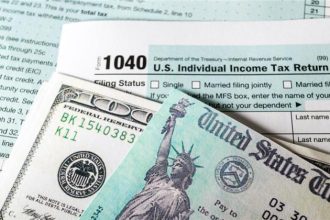Credit Sesame discusses the difference between debt settlement and debt management and how each affects credit score.
Credit counseling is a term for a variety of services offered to consumers who find themselves buried in credit card debt. It is often used to describe both debt settlement and debt management programs offered by legitimate not-for-profit credit counselors. While each is designed to get the consumer out of credit card debt, their impact on credit scores could not be more dissimilar.
Debt settlement vs. debt management
Settling a debt is the process whereby the consumer or their representatives negotiate a payoff to a lender that’s less than the amount actually owed. For example, if you owe a credit card issuer $15,000 of defaulted credit card debt and you convince them to accept $3,000 as payment in full, then you’ve settled the debt. Consumers can negotiate settlements on their own or they can hire a third party debt settlement company who will negotiate on their behalf.
A debt management program or “DMP” is a service offered by non-profit credit counseling organizations such as the members of the National Foundation for Credit Counseling. If you have excessive credit card debt, don’t want to file for bankruptcy, and can afford to make some smaller payment amount, then a DMP might be your best bet. With a DMP, you make one monthly payment to the credit counseling organization, and they pay your credit card issuers. Most DMPs take 3 to 5 years to complete.
Impact of debt management on your credit score
There was a time many years ago when paying off a credit card through a debt management program could lower your credit scores. The credit card account was reported to the credit bureaus as being paid through non-profit financial counseling. That notation was considered negative.
That is not the case today. Going into a debt management program is benign to your credit scores. While the credit card issuer is being paid through the program, they will report you to the credit bureaus as being “paid as agreed,” which is also good for your credit scores. When you exit the program, you do so without any credit card debt and with solid credit scores, which has to be a great feeling.
Impact of debt settlement on your credit score
Debt settlement is a different story. When you settle an account with a credit card issuer, it is updated on your credit report summaries as either a “partial payment plan” or “settlement accepted by creditor.” Both of those notations are considered negative by credit scoring systems and can lower your credit scores. However, most credit card accounts that go through the process of settlement are already severely delinquent and even possibly in default. As such, the item is already being considered negative by credit scoring systems. The fact that the account is settled may not add any incremental damage to your credit scores.
Still, settlements aren’t always a bad idea. You’ll certainly save money—possibly a lot of money—by settling defaulted debts. Many creditors will take considerably less than you actually owe and agree to stop pursuing you for the remaining amount.
If you have debts that have been sold to collection agencies, then settlements are a good idea. Most debt buyers and collection agencies acquire defaulted credit card debt for mere pennies on the dollar. If you’re willing to make a lump sum payment to settle the debt, then you could get away with paying a small fraction of what you owed the original creditor.
Does checking your credit hurt your score?
Perhaps you do not have mountains of debt but are still uncertain about where you stand with your score.
Inquiries can either be hard or soft, depending on who’s pulling your credit and what they’re using it for. When a lender or business obtains a copy of your credit report in response to an application for credit, it results in a hard inquiry. The same goes for collection agencies conducting a skip trace. This means that it shows up on your credit report and is used in part to determine your credit score.
You are allowed to request an annual free credit report from the three reporting agencies. This will be counted as a soft inquiry and will not be part of your credit score calculation. It’s a good idea to be diligent and to check your score regularly to track your progress and sustain your credit.
Does closing a credit card hurt your credit?
When your credit score is calculated, it takes into account how much you are utilizing your credit. In other words, if you had a credit limit of $500 and you spent $250, your utilization ratio would be 50%. By closing a credit card, you are essentially lowering your utilization rate by lowering the credit available to you and increasing the ratio. Even if you pay off your cards, it can be a good idea to keep the credit card account open to take advantage so the higher credit limit factors into you credit utilization. That said, if annual fees outweigh the few points gained from keeping the card open then it might not be worth it to keep the account open.
If you enjoyed Debt settlement vs. debt management program you may like,
Disclaimer: The article and information provided here is for informational purposes only and is not intended as a substitute for professional advice.
Read the full article here
















